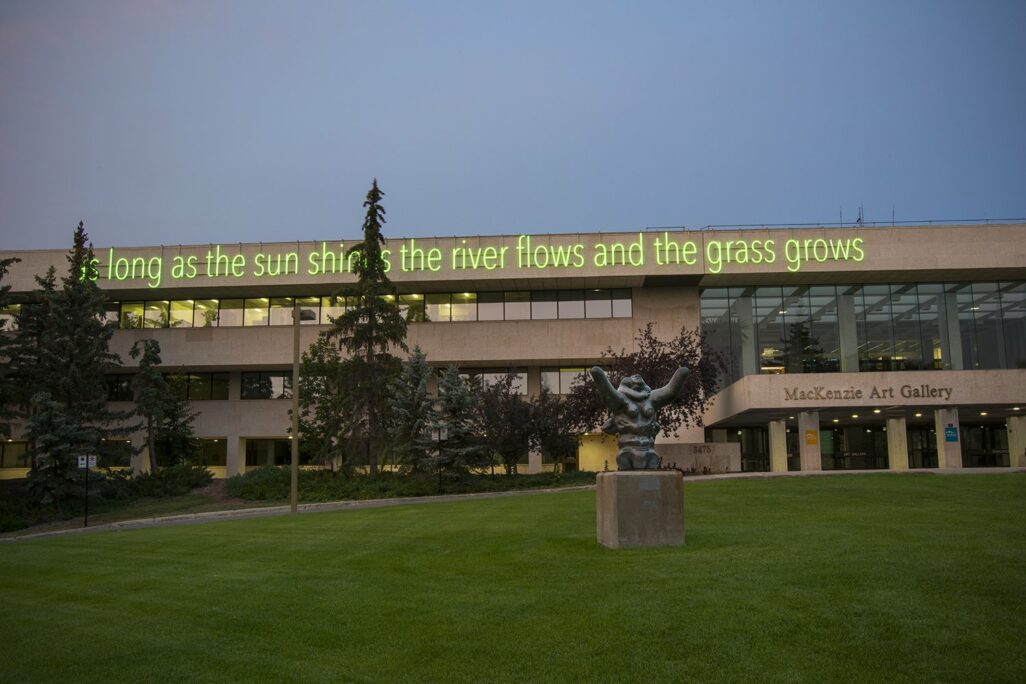Content Advisory: Residential School System, genocide, death.
We are heartbroken to learn of the discovery of an unmarked mass burial site containing the remains of 215 children at the former Kamloops Residential School. The evidence of these crimes against humanity is a horrific reminder of the devastating impact colonialism continues to have on Indigenous peoples.
Our staff and board send condolences to the Tk’emlúps te Secwe̓pemc First Nations, and the other Indigenous communities across Turtle Island whose relatives never returned home from this and over 130 other schools that operated between 1831-1996 (the final residential school to close was Gordon’s Indian Residential School, located 129 km from the MacKenzie Art Gallery).
We acknowledge that this news reopens wounds and sparks a lot of grief and anguish for those in our community. This week, our thoughts are with Justice for Our Stolen Children, who are awaiting a decision on their appeal heard yesterday morning. If you’d like to learn more about this ongoing case, please visit: www.facebook.com/justiceforourstolenchildren
As a community, this is a time to reflect deeply on the structures and ideologies which made these atrocities possible and how we can work toward dismantling them. As a cultural institution, it is our responsibility to hold space for this learning, grief, outrage, dialogue, and calls for justice. It is our duty to provide a platform for our community to share their lived experiences and explore complex issues from a local and global perspective—including the ways in which systemic racism affects Indigenous peoples, newcomers, and cultures around the world. We encourage our non-Indigenous colleagues and friends to learn about the residential school system (a list of resources has been linked at the bottom of this statement).
In addition, we invite our community to participate in conversations about the lasting impacts of colonialism through upcoming programs highlighting the voices of Indigenous artists. Touching Earth and Sky, an exhibition curated by Felicia Gay, will explore concepts of adoption and fostering through an Indigenous lens, and its complex and painful interactions with the settler definitions of those words. Periodically throughout the exhibit, Story Keeper Melanie Monique Rose will be present and available to speak, listen and support visitors.
Pasapkedjinawong features artists from Turtle Island and across the Great Ocean who examine how languages survive, overtake, adapt or resist frameworks of colonial violence and repression.
A screening of short films curated by Janine Windolph, kiskisiyâpiyawin ‘threads of memory’ will be on view throughout regular gallery hours in the Shumiatcher Theatre following our reopening on June 12. This series features eight films addressing cycles of colonial violence and intergenerational trauma on the Saskatchewan prairies.
If you or someone you know needs support, the Indian Residential Schools Crisis Line is open 24/7 and can be reached at 1-866-925-4419; the IRSSS (Indian Residential School Survivors Society) Emergency Crisis Line available 24/7 or counselling support at 1-800-721-0066; the Indian Residential Schools Resolution Health Support Program is available at sac-isc.gc.ca/eng/1581971225188/1581971250953
If you would like some educational resources to learn more about these systems and their legacies, they can be found here:

